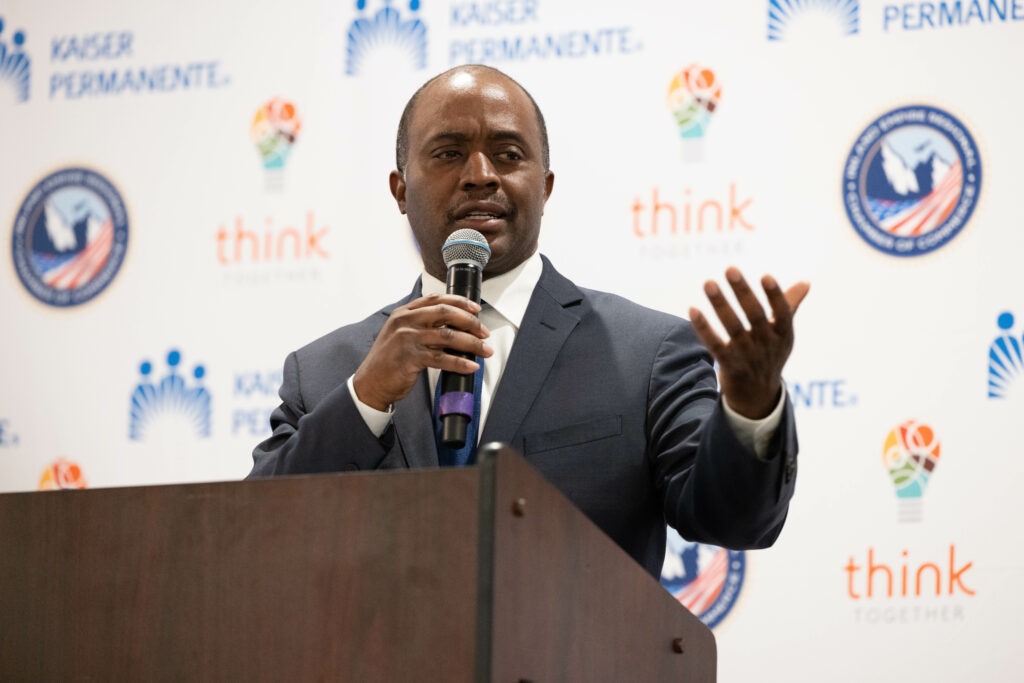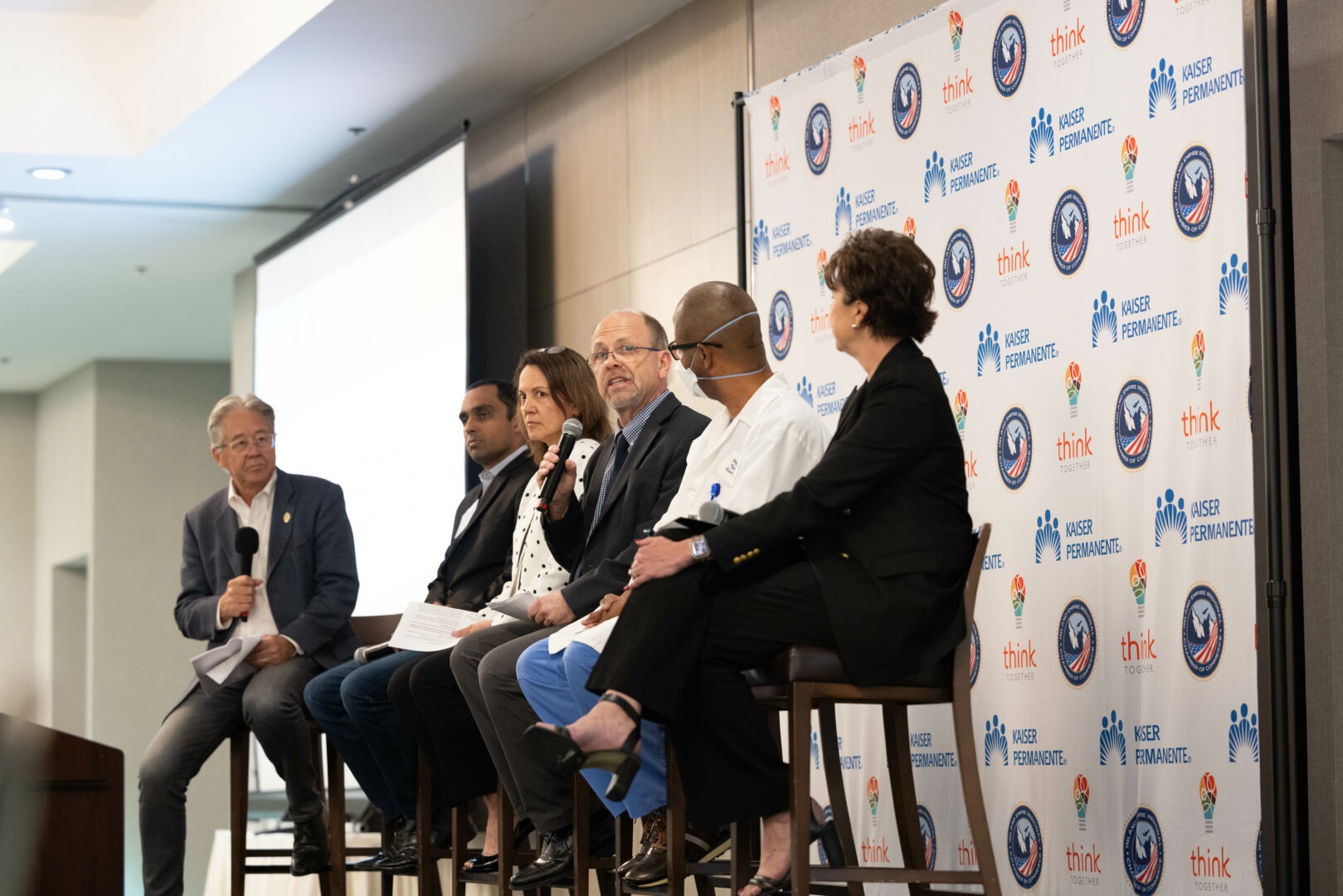Nearly 200 Leaders Gather For Fourth Annual Inland Empire Education and Workforce Summit
California State Superintendent of Instruction Tony Thurmond Tapped as Keynote Speaker at Inland Empire Education and Workforce Summit
Think Together, in partnership with the Inland Empire Regional Chamber of Commerce, hosted its fourth annual Inland Empire Education and Workforce Summit at the Ontario Airport Hotel and Conference Center on April 24.
The annual summit brought nearly 200 educators, business leaders and elected officials together to discuss key strategies for bridging the gap between education and the workforce, and creating a platform where innovative solutions can be explored to ensure the success of students and the prosperity of the community.
The summit opened with Dr. Alex McDonald from Kaiser Permanente, to share how healthcare intersects with education and workforce development. Kaiser Permanente sponsored the summit and had a strong history of supporting initiatives that work to improve whole health outcomes for the communities it serves.
“At Kaiser Permanente, we understand that the link between health and education is fundamental to achieving positive outcomes for students,” said Dr. Douglas Mack, Chief of Physical Medicine, Kaiser Permanente San Bernardino County. “By addressing health disparities and promoting wellness initiatives, we not only support academic success but also empower students to thrive in all aspects of their lives.”
Randy Barth, Founder and CEO of Think Together, then introduced Jusbith Aguayo, a student speaker from Eisenhower High School, who shared her inspiring journey and highlighted the impact of educational support programs on students’ lives.
Jusbith’s story is truly inspiring. Having immigrated to the United States in her early teens, she experienced tremendous academic and personal growth. Having joined Think Together in her middle school years, she found her voice and built invaluable skills for the future through participation in the Work Force Readiness Program and other various clubs.
“As we continue to face the complexities posed by the pandemic, it’s important to recognize the transformational power education and community have in shaping the future of our students,” said Barth. “Jusbith’s story is a testament to the profound impact these initiatives can have on individuals and communities alike when overcoming barriers to success.”
Following her testimonial, Barth led an expert panel of education, workforce, and healthcare leaders to discuss how education can support and prepare students for success in the workforce while continuing to face challenges exacerbated by the COVID-19 pandemic, such as academic performance, social emotional learning and mental health issues. Participants included:
- Dr. Angelo Farooq, Chairman at California Workforce Development Board
- Dr. Carol Tsushima, Administrator of Workforce SBCSS at San Bernardino County Superintendent of Schools
- Dr. Scott Price, Chief Business Official at Riverside County Office of Education
- Dr. Douglas Mack, Chief of Physical Medicine, and Rehabilitation Specialist at Kaiser Permanente
- Connie Leyva, Executive Director of KVCR & FNX
To round out the summit, California Superintendent of Public Instruction Tony Thurmond gave this year’s keynote address, emphasizing the importance of equitable access to quality education and the need for continued collaboration between educators, policymakers, and community stakeholders.

“Afterschool programs that expose students to career-ready learning experiences create a critical bridge between school-day learning and future success, said State Superintendent of Public Instruction, Tony Thurmond. “That’s why I have championed investments in apprenticeship programs, paid internships, and workforce readiness programs. When our afterschool programs directly link to the real world, we connect our students to real success.”
The California state budget allocated more than $4 billion to support the Expanded Learning Opportunities Program (ELO-P), allowing schools to offer no-cost afterschool, before-school and school-break programs to traditionally under-resourced students. ELO-P programs have been embraced by public schools throughout the state to give students and families added out-of-school time support.
After the devastating effects of the pandemic on children and families, the state championed ELO-P grants to help support students most impacted by the pandemic. However, these grants support expanded learning programs for K-8 students. High Schools utilize 21st Century Community Learning Center grants to provide expanded learning opportunities, such as Think Together’s Workforce Readiness Education Program (WREP), Driver’s Education and STEM clubs for high school students.
Private and community-based programs play a vital role in supplementing these efforts, offering a diverse range of enrichment activities, mentorship opportunities, and academic support tailored to the unique needs of high school students.



